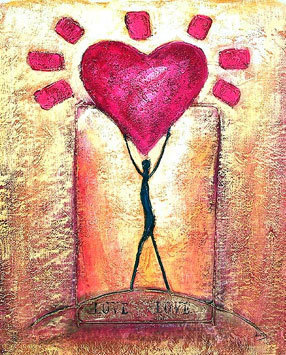Last Sunday we wrapped up our COR@Noon series, “Encountering God through Story,” with another powerful time of sharing. A big thanks to all who came to these after church times, and especially to those who shared: Bob Decker, Susan Greener, Nancy DeWeese, and Travis Booth. If you haven’t yet sent a note to one of our story-sharers, it’s not too late!
 One of the themes in the story Travis shared last story was the power of vulnerability, in his self-reflection as well as in what and how he shared. Vulnerability is a challenge for all of us. Most of us aren’t sure it’s really worth it to be vulnerable to others. It’s no accident that after Adam and Eve sin in the garden of Eden, their first act is to hide — first from each other (making clothing) and then from God. In a fallen world, we quickly learn to hide. Shame, guilt, insecurity, fear… all these factors argue fairly persuasively that we should remain hidden from one another and from God. Exposure and risk feel threatening. Perhaps when we’ve taken a risk and let another person really know us, we’ve gotten hurt. Vulnerability feels like just a really good way to get hurt really badly.
One of the themes in the story Travis shared last story was the power of vulnerability, in his self-reflection as well as in what and how he shared. Vulnerability is a challenge for all of us. Most of us aren’t sure it’s really worth it to be vulnerable to others. It’s no accident that after Adam and Eve sin in the garden of Eden, their first act is to hide — first from each other (making clothing) and then from God. In a fallen world, we quickly learn to hide. Shame, guilt, insecurity, fear… all these factors argue fairly persuasively that we should remain hidden from one another and from God. Exposure and risk feel threatening. Perhaps when we’ve taken a risk and let another person really know us, we’ve gotten hurt. Vulnerability feels like just a really good way to get hurt really badly.
So we learn to hide. We learn to put on a good front, to say “I’m fine” whether or not it’s true, to create lots of barriers between us and other people so that we feel safe. Church can be a great place to hide. At church, we can hide behind artificial cheerfulness (after all, “God is good” and “I’m saved, Hallelujah”). Sometimes in our churches, we think it’s a Christian virtue to be “nice” — and letting our weaknesses show isn’t really “nice.” At church, we still talk about sin — but we don’t want to actually be known as the sinners we are. We are afraid that if we let our inner darkness show, if we let ourselves be truly known even for a moment, we’ll be rejected by the community — even though the church community ought to be the safest place in the world to struggle! So we learn to hide in the church too. Perhaps we even come to believe deep down that if we’re not perfect, God will reject us too.
But the great paradox is this: the only path to true safety is the dangerous path o f vulnerability. The very path that feels most threatening is the only path that leads to where we will feel most loved and alive. From a scientific
f vulnerability. The very path that feels most threatening is the only path that leads to where we will feel most loved and alive. From a scientific
perspective, researchers such as Brene Brown are discovering that vulnerability — letting our weaknesses show, letting our true selves be known in all their messiness — can actually begin to deconstruct the shame and fear and insecurity that keeps us enslaved and isolated. From a theological perspective, the apostle Paul’s words about God’s power being made perfect in our weakness come to mind. If we refuse to acknowledge our weakness, we refuse to experience God’s power to the fullest.
What we long for when we are vulnerable is to hear another person say, “I understand. I love you. I’m with you and want your good.” The power of a community that can respond like that to struggle, weakness, and even sin cannot be underestimated. That is the type of community we seek to be in and through our “Story” series. When we hear one another confess, “I struggle with this,” our response is not to pull away and grow distant, not to remain silent and uncomfortable, not to grow disapproving and harsh, but to say, “take my hand, I’m with you,” “I love you, let’s walk forward together.” In this kind of community, sin loses one of its biggest advantages: secrecy.
As we enter Advent, the season of light and of waiting for the coming King, let us pray that the light of Christ may continue to shatter the darkness of shame and fear in our hearts. Let us pray that we might continue to grow in our ability to be a community of faith in which it is safe to be vulnerable and safe to struggle. And let us reflect on the profound vulnerability of the Incarnation, God made flesh and subject to all the dangers of this world just like us, risking hurt and misunderstanding and rejection so that we might know Him and receive His love. Thanks be to God!
~Deacon Amanda
